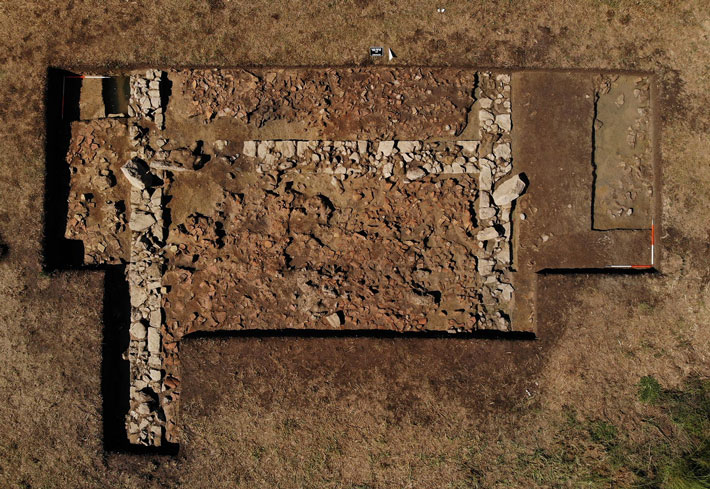 MAINZ, GERMANY—According to a statement released by the University of Mainz, researchers from the Austrian Archaeological Institute, Johannes Gutenberg University Mainz, Kiel University, and the Ephorate of Antiquities of Elis have uncovered traces of a 2,500-year-old structure that may have been part of a sanctuary of Poseidon, the Greek god of the sea. The structure is located at the Kleidi site, on the western coast of the Peloponnese region of southern Greece. “The location of this uncovered sacred site matches the details provided by [the ancient Greek historian] Strabo in his writings,” said Birgitta Eder of the Austrian Archaeological Institute. Fragments of roof tiles and a piece of a marble ritual water basin, or perirrhanterion, were also recovered. Eder and the research team will continue to investigate the structure’s relationship to the seaside landscape, which earthquakes and tsunamis have transformed over time. The location may even have been chosen for Poseidon’s temple for this reason, the researchers concluded. To read about an island sanctuary that was home to an ancient Greek mystery cult, go to "Secret Rites of Samothrace."
MAINZ, GERMANY—According to a statement released by the University of Mainz, researchers from the Austrian Archaeological Institute, Johannes Gutenberg University Mainz, Kiel University, and the Ephorate of Antiquities of Elis have uncovered traces of a 2,500-year-old structure that may have been part of a sanctuary of Poseidon, the Greek god of the sea. The structure is located at the Kleidi site, on the western coast of the Peloponnese region of southern Greece. “The location of this uncovered sacred site matches the details provided by [the ancient Greek historian] Strabo in his writings,” said Birgitta Eder of the Austrian Archaeological Institute. Fragments of roof tiles and a piece of a marble ritual water basin, or perirrhanterion, were also recovered. Eder and the research team will continue to investigate the structure’s relationship to the seaside landscape, which earthquakes and tsunamis have transformed over time. The location may even have been chosen for Poseidon’s temple for this reason, the researchers concluded. To read about an island sanctuary that was home to an ancient Greek mystery cult, go to "Secret Rites of Samothrace."
Possible Archaic Temple of Poseidon Discovered in Greece
